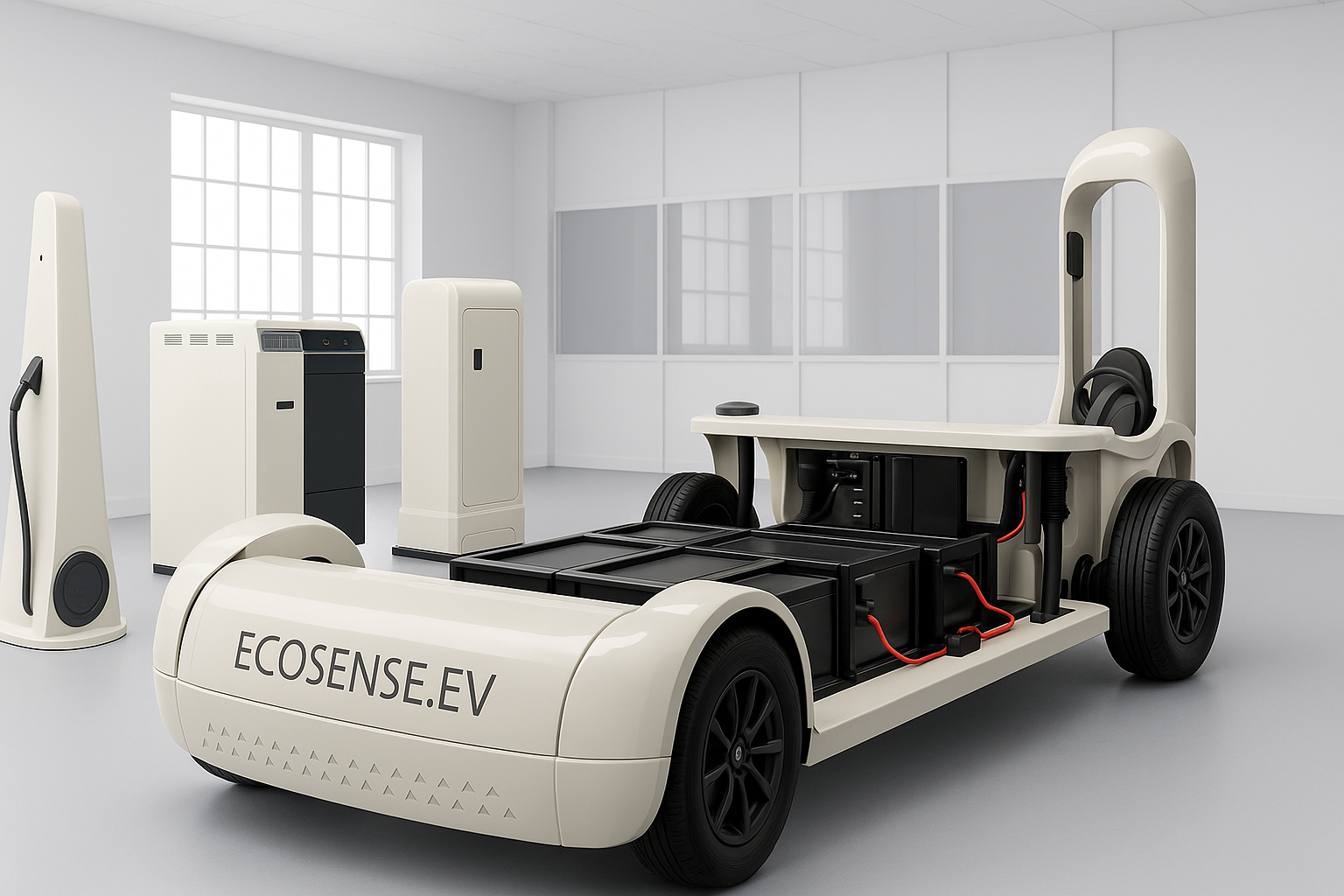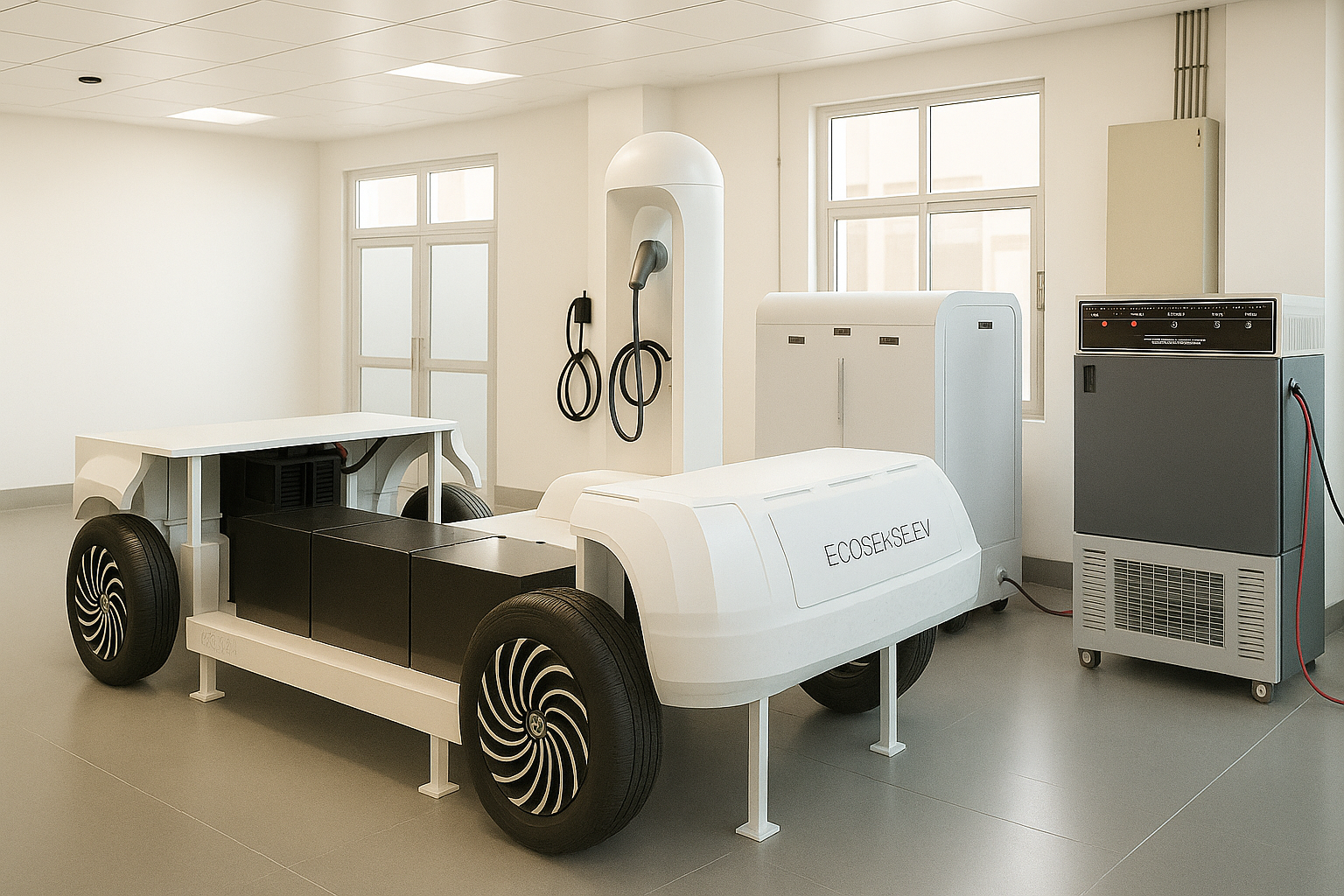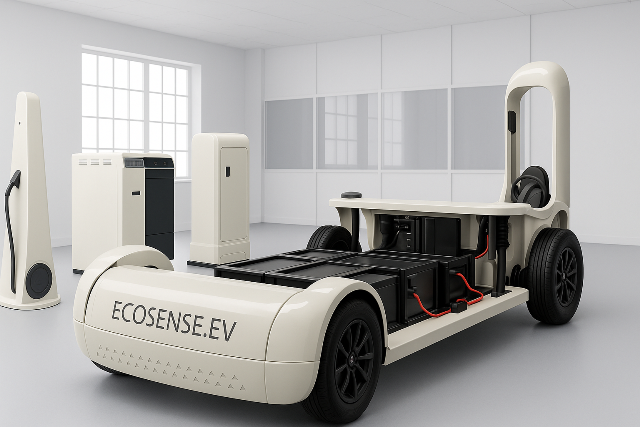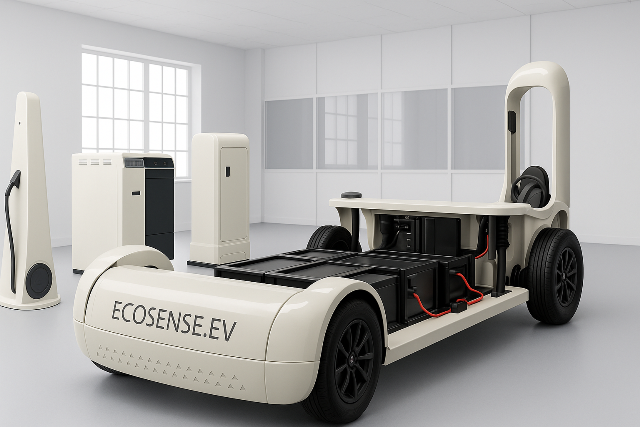EV Drive Line Simulator
The EV Drive Line Simulator (EDLS) by Ecosense is a state-of-the-art educational and experimental platform designed to provide real-time simulation, analysis, and control of electric vehicle (EV) drivetrain systems. With integrated traction motors, dynamometer-based loading, and open-source software, EDLS allows students and researchers to deeply engage with every aspect of EV propulsion, control, and regenerative braking. It serves as a complete, lab-scale replica of an actual EV drivetrain, enabling practical learning, algorithm development, and system performance evaluation.




